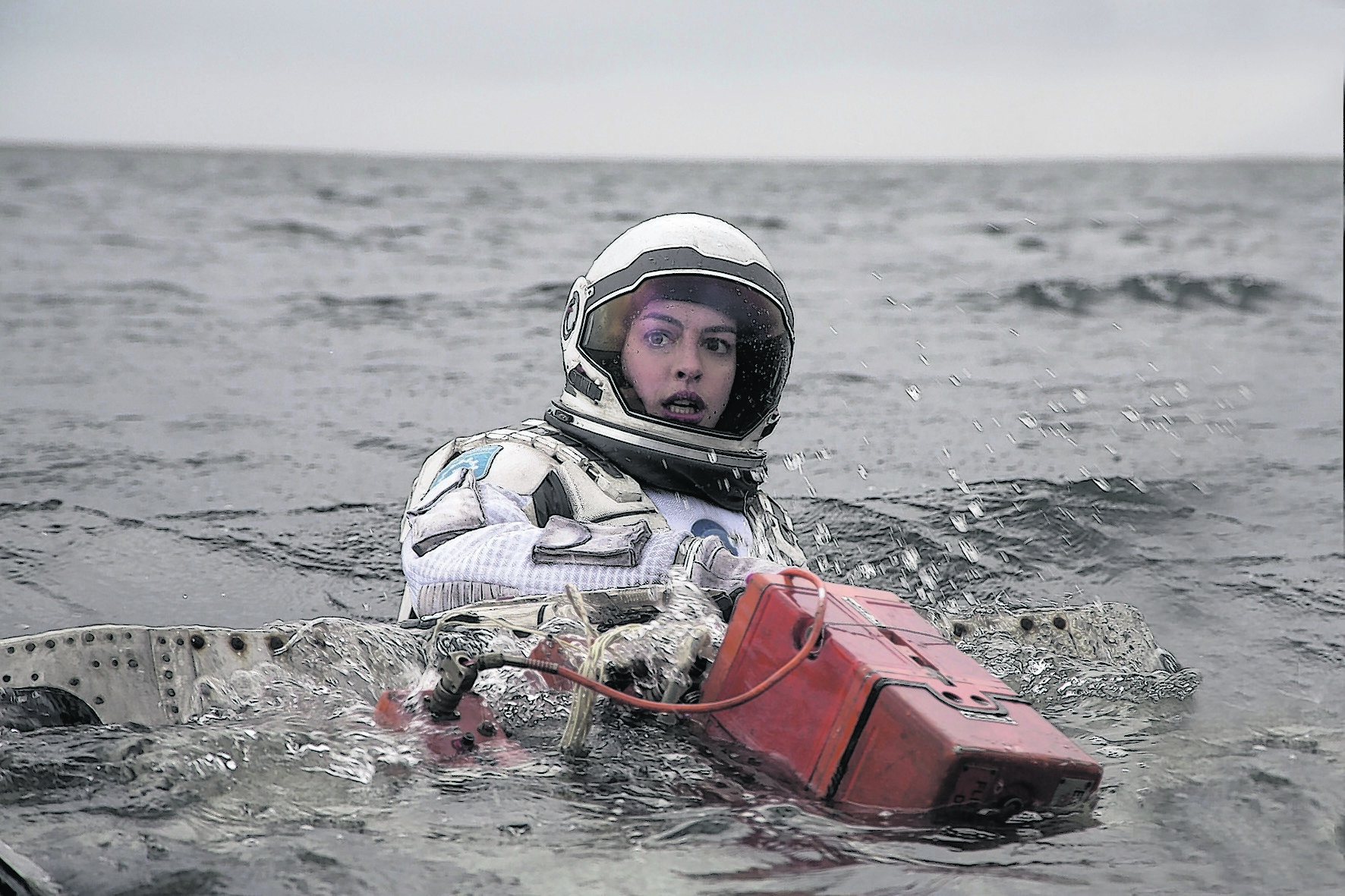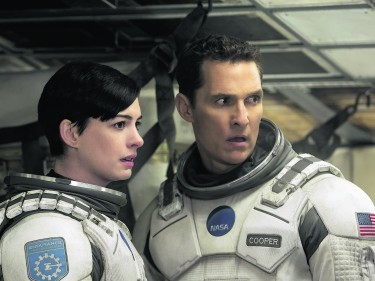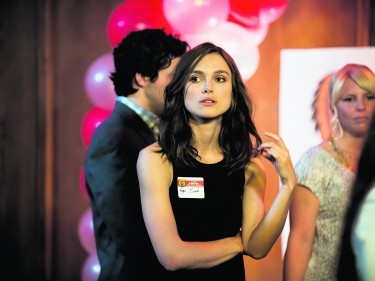We review this week’s top cinema releases
INTERSTELLAR (12A)
Writer-director Christopher Nolan shoots for the stars with a futuristic thriller, co-written with his brother Jonathan, about mankind’s search beyond this galaxy for a new home to replace a dying Earth.
Epic in scope and wildly ambitious, Interstellar doesn’t quite achieve its bold vision of a love story between a father and daughter set against the vast backdrop of mankind’s final roll of the dice to avoid extinction.
However, even when this grand futuristic adventure malfunctions, it’s a deeply engrossing meditation on the ties that bind and the endurance of those emotional bonds across space and time.
Nolan and cinematographer Hoyte van Hoytema have captured some of the most breathtaking vistas, including our first glimpses of a black hole or wormhole on large-format Imax film.
These sequences pack a mighty visual punch and convey powerfully how tiny and seemingly insignificant we are on our third rock from the sun.
Composer Hans Zimmer, who collaborated with the London-born director on The Dark Knight trilogy, provides another bombastic orchestral score to complement the majestic imagery.
Planet Earth is dying: great dust clouds sweep across agricultural plains, ruining crops and making it impossible to breathe comfortably without face masks.
“We used to look up and wonder about our place in the stars. Now we just look down and worry about our place in the dirt,” laments Cooper (Matthew McConaughey), a former test pilot, who toils the parched soil with his 15-year-old son, Tom (Timothee Chalamet), and 10-year-old daughter, Murph (Mackenzie Foy).
Cooper answers a call from Professor Brand (Michael Caine) to lead a mission to locate a new planet capable of sustaining human life.
“We’re not meant to save the world. We’re meant to leave it,” explains Brand, whose scientist daughter Amelia (Anne Hathaway) will be part of the four-strong crew, along with astrophysicist Romilly (David Gyasi) and pilot Doyle (Wes Bentley).
Leaving his brood in the care of his father-in-law (John Lithgow), Cooper undertakes the most important mission in human history, knowing that failure would mean certain death for the people he loves.
Interstellar retains a tight focus on the characters without sacrificing the adrenalin-pumping thrills that fans expect from director Nolan.
Two talking military machines called TARS (voiced by Bill Irwin) and CASE are marvels of mechanical puppeteering and inject some much-needed humour.
“I have a discretion setting,” deadpans TARS in response to a request from Cooper to disclose sensitive information.
Oscar winners McConaughey and Hathaway add emotional heft to their embattled astronauts, wringing out tears after Amelia sternly warns Cooper: “You might have to choose between seeing your children again and saving the human race.”
A couple of dense, wordy philosophical discussions about gravity and love orbit the moon of unintentional hilarity, but, thankfully, Nolan avoids the crash and burn in the nick of time.
SAY WHEN (15)
Writer-director Lynn Shelton came to the fore with her 2009 bro-mantic comedy Humpday, about two straight male friends who drunkenly agree to have sex with each other on film for an art project.
The acutely observed and provocative tale of brotherly bonding in extremis laid the groundwork for Shelton’s subsequent pithy surveys of the sexes in Your Sister’s Sister and last year’s Touchy Feely.
Say When, her sixth feature, marks a concerted shift away from her low-budget indie roots towards glossier mainstream fare.
It’s also her first film based on someone else’s script – a gamble that doesn’t pay off, sadly.
Screenwriter Andrea Seigel hinges her freewheeling narrative on a beautiful 28-year-old who has no direction in her life and is content to wander aimlessly from one uneventful day to the next in the company of friends from school, who all seem to know where they are heading.
She’s the least likeable and sympathetic character in the film, which poses an unsurmountable hurdle for Shelton, who has to convince us to care deeply about her lackadaisical and deceitful heroine.
The slacker in question is Megan (Keira Knightley), who has an impossibly patient and understanding boyfriend called Anthony (Mark Webber), and works for her father, Ed (Jeff Garlin), by twirling a sign at the roadside.
At the wedding of best friend Allison (Ellie Kemper), Megan sidesteps a marriage proposal from Anthony and catches Ed in a clinch with a woman who certainly isn’t her mother.
Shell-shocked by her vacuous world spinning off its axis, Megan heads to the grocery store for wedding-reception supplies and ends up buying alcohol for disaffected 16-year-old Annika (Chloe Grace Moretz) and her chums.
Charmed by the teenager’s carefree attitude to life, Megan tells Anthony that she is heading out of town for a week to attend a seminar, but really heads to Annika’s house and crashes on the floor of her underage friend’s bedroom.
The youngster’s father, a divorce lawyer called Craig (Sam Rockwell), eventually allows Megan to stay in the film’s first stretch of credibility.
“Please don’t let this decision become bad parenting on my part,” he warns Megan and, almost inevitably, there’s a spark between the divorcee and his new house guest.
Fittingly, Say When lacks the same sense of propulsion and purpose as the hapless heroine.
Even the title sounds wishy-washy.
Knightley, Moretz and Rockwell barely scratch the surface of their unlikely cohabitants, while Webber is wasted in a thankless supporting role as the nice guy who anchors himself to a woman who clearly doesn’t appreciate his many charms.
Their broadly sketched characters trade glancing verbal blows as the script meanders towards its inevitable and lacklustre moment of reckoning.


